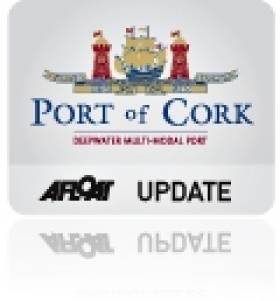Displaying items by tag: Bantry Bay Harbour
Development of Bantry Bay Harbour to Start
#BantryUpgrade - An upgrade costing €8.5m to the main harbour in Bantry Bay writes the Irish Examiner is expected to get underway later this month.
The long-awaited project at the port (see 2015 figures) will provide a huge boost to tourism and marine industries in the West Cork town.
BAM Civil Ltd was yesterday appointed main contractor for phase one of the the inner harbour development.
It involves the creation of a 20-berth marina on quayside pontoons, plus dredging to a depth of 4m, which will allow vessels access the inner harbour in all tidal conditions.
The main pier is to be widened and extended while a 4,000sq m public recreational amenity will be created from reclaiming land adjacent to the railway pier, also in the inner harbour.
To read more from the newspaper, click here.
Public Consultation On Future Of Bantry Bay Harbour
#IrishHarbours - The Department of Transport, Tourism and Sport (DTTAS) is asking members of the public and all interested parties for their views on plans to merge Bantry Bay Harbour with the Port of Cork Company.
The department believes that the future of Bantry Harbour would best be secured through a merger, and is seeking views on the proposals by 5 April.
Government policy is to merge harbours with significant commercial traffic with a port company, and to transfer smaller harbours to a local authority. To date 11 harbours have transferred to local authority control. Bantry Bay Harbour is now the only regional harbour operating under the Harbours Act of 1946.
A Review of Regional Ports and Harbours in 1999 recommended that Bantry Bay Harbour Authority should merge with the Port of Cork company, on the grounds of good governance.
The core business of Bantry Bay Harbour is the oil storage and transhipment terminal on Whiddy Island. Aquaculture, fishing and tourism are also prevalent in the harbour and a small number of cruise liners visit the harbour each year.
Amalgamation with the Port of Cork would provide access to port expertise, marketing, strategic development planning and the skills required for the regulation of navigation, ship and port security requirements, pilotage, safety, emergency response, and pollution.
The Port of Cork currently provides this professional expertise through the provision of harbourmaster services, on a contractual basis, to bring in large oil tankers and cruise liners into the bay. This is an absolute requirement to operate business in Whiddy to help mitigate the risks of maritime accidents and environmental damage.
Should the transfer take place to the Port of Cork, there is an opportunity for the port to provide local representation to Bantry Bay and some investment back into the harbour. The opportunity also exists for the Port of Cork and the local authority to co-operate with regard to the future development of the harbour.
























































